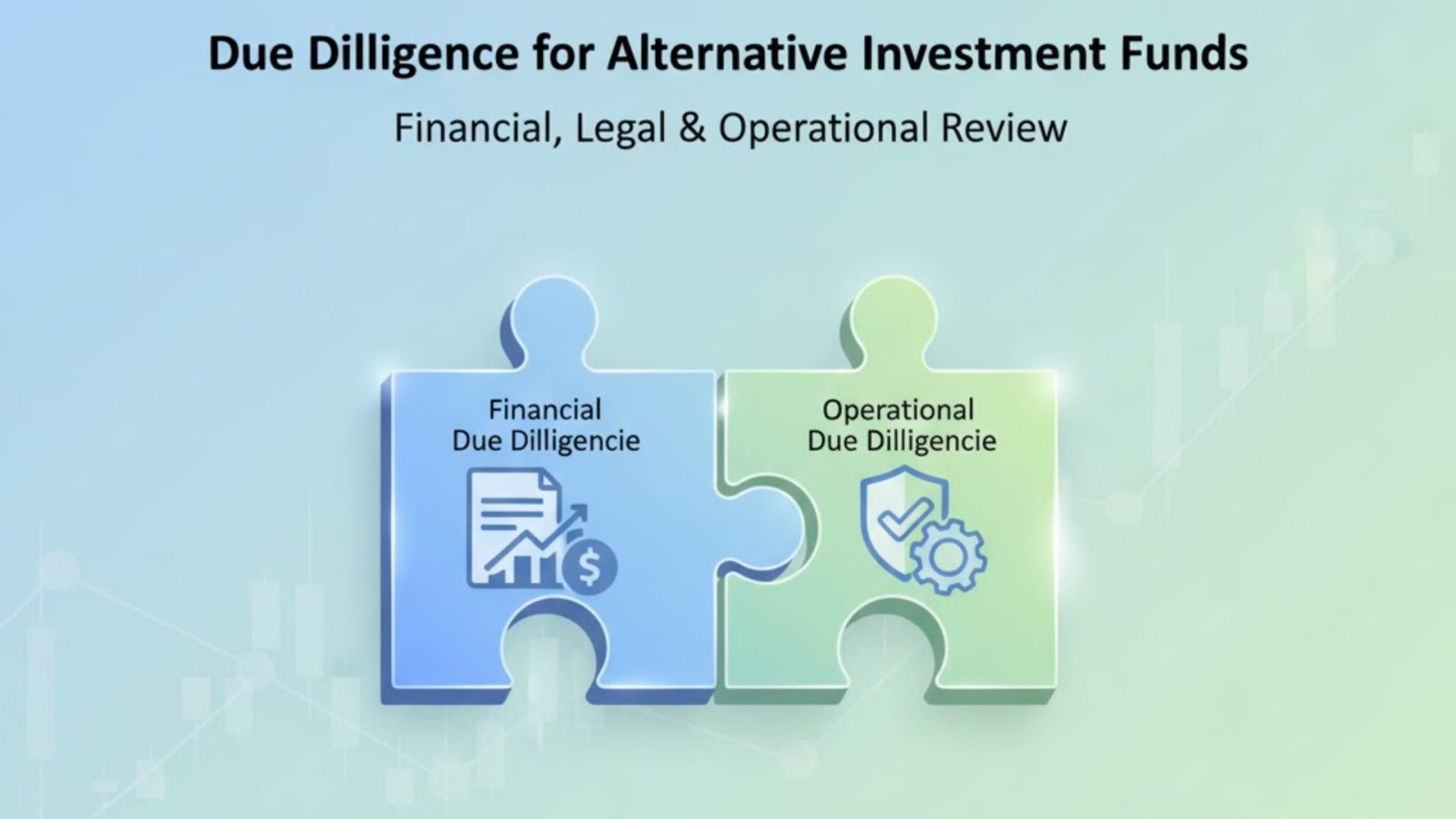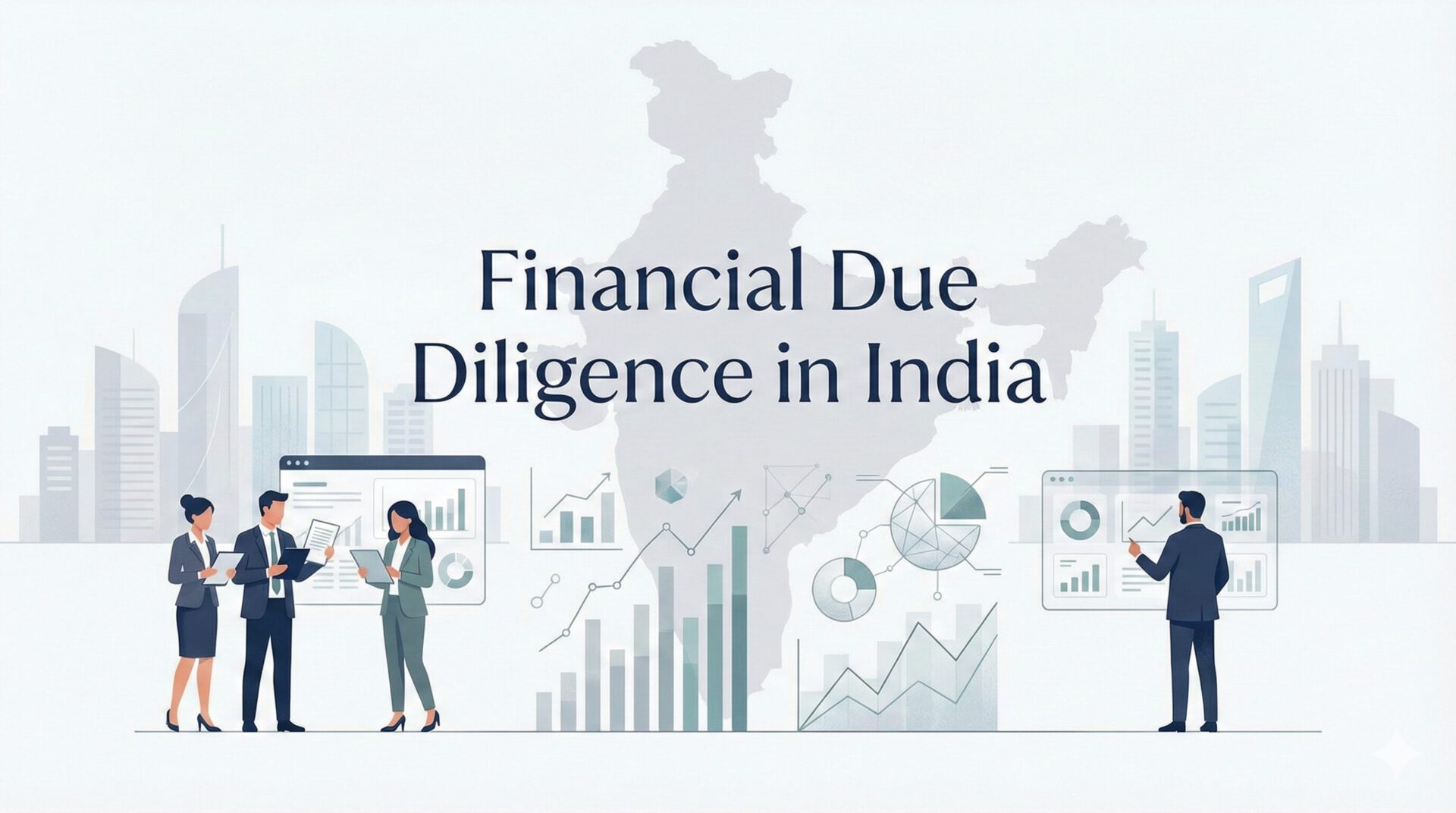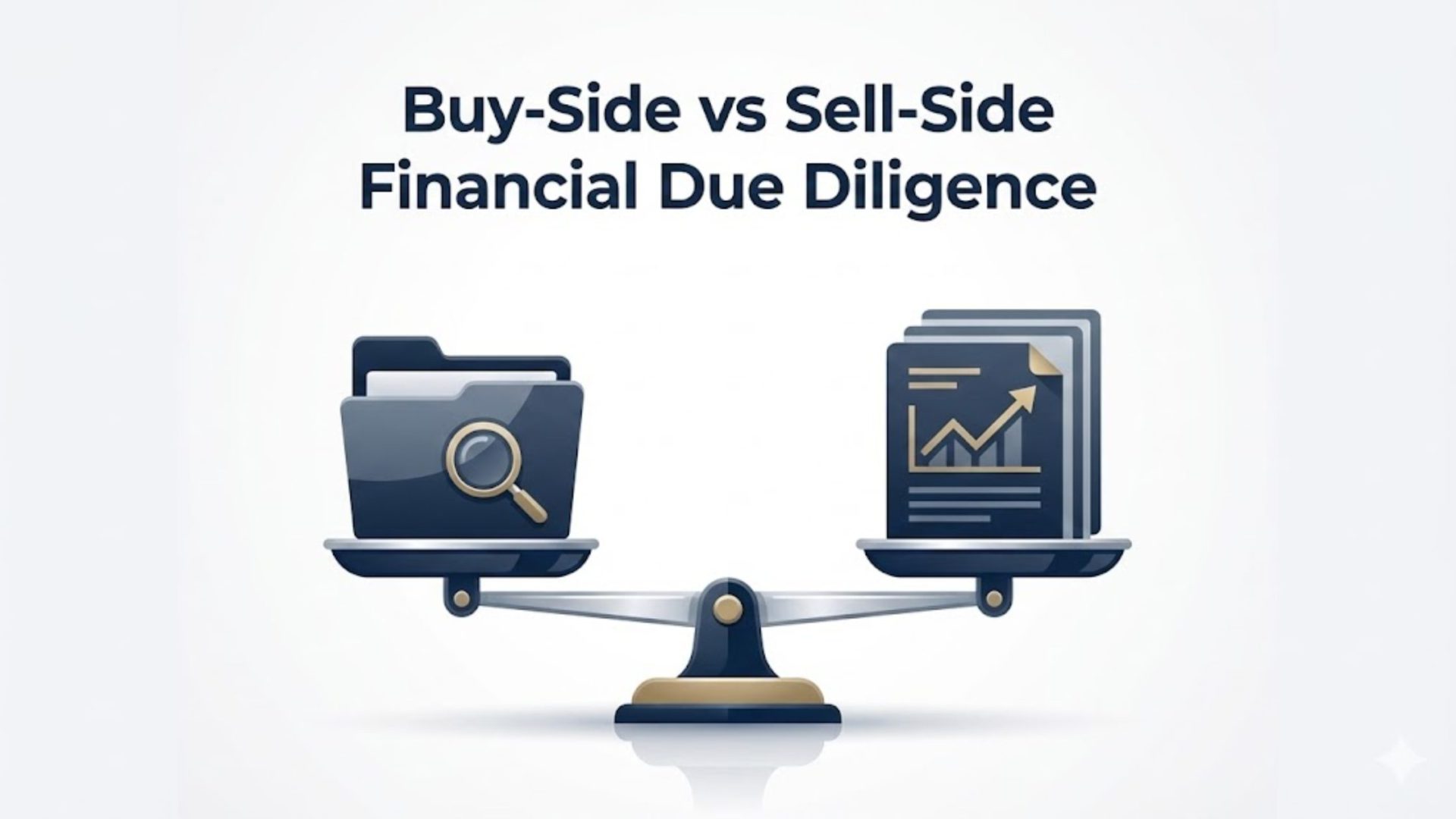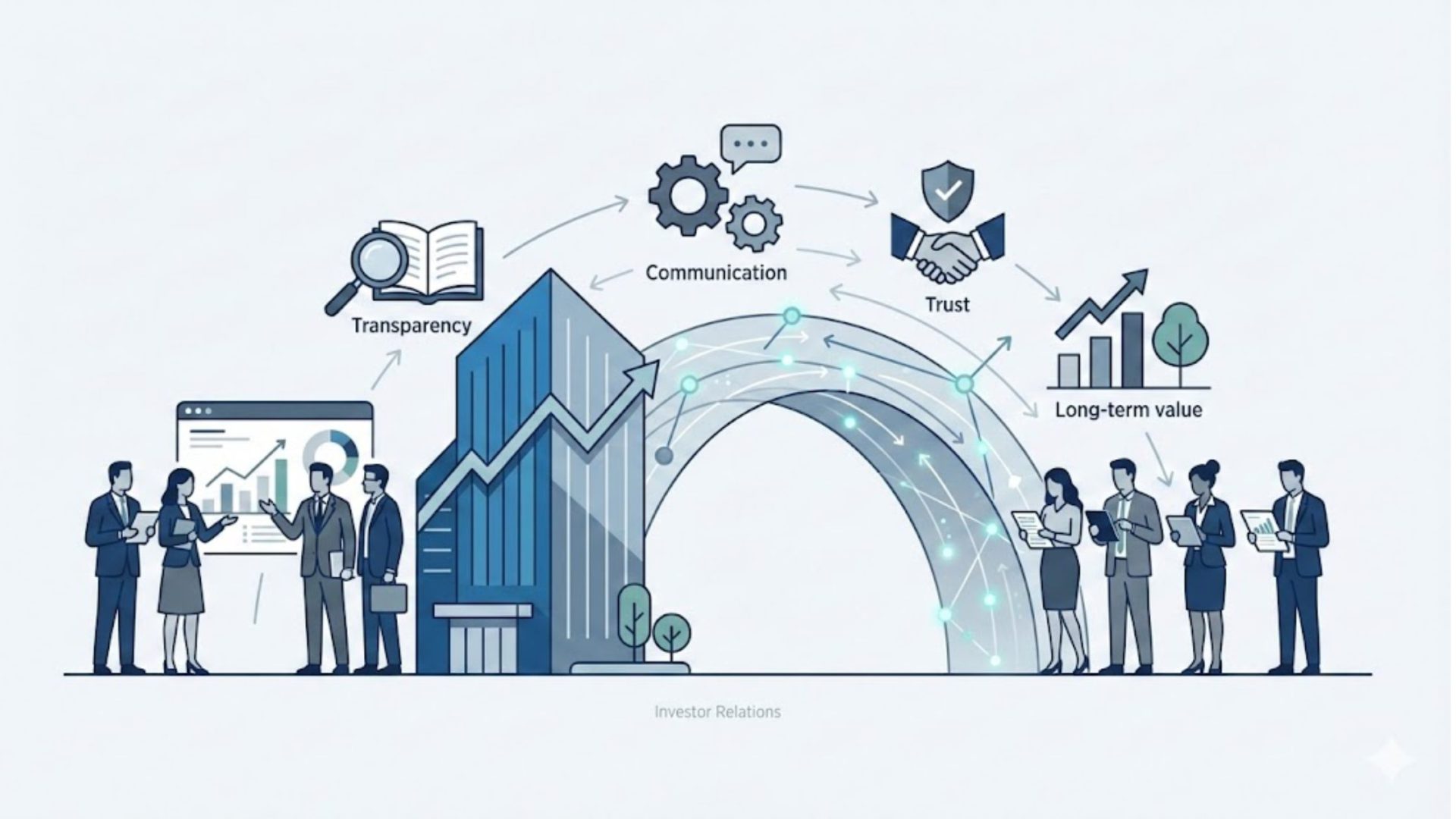Operational Due Diligence Best Practices for AIF Managers
Published on 7/11/2025

Alternative Investment Funds are steadily reshaping the investment ecosystem in India. Unlike traditional mutual funds, these investment vehicles often deal with unlisted securities, private equity, venture funding, distressed assets, real estate holdings, and other complex opportunities. Because the stakes are high and the structures are sophisticated, due diligence becomes a critical safeguard—ensuring that every investment decision is backed by facts, compliance checks, Operational Due Diligence, and a clear understanding of associated risks.
Advisory partners specializing in fund administration, accounting oversight, compliance frameworks, and investor relations support play an important role in helping AIFs carry out thorough and structured due diligence processes. Their involvement minimizes the risk of oversight and improves decision-making clarity for fund managers and investors alike.
1. What is Due Diligence in the Context of AIFs?
Due diligence refers to the systematic evaluation of a target company, asset, or investment opportunity. The goal is to confirm the authenticity of claims, identify risks, and determine whether the investment aligns with the fund’s mandate and expectations.
For AIFs, due diligence extends beyond the financials:
- It verifies legal standing and regulatory compliance.
- It assesses the stability, scalability, and quality of management.
- It evaluates operational reliability and market sustainability.
Ultimately, due diligence protects investor capital and enhances transparency throughout the fund lifecycle.
2. Key Areas of Due Diligence for AIFs
2.1 Financial & Accounting Review
A thorough financial evaluation helps determine the true health of the target. This includes:
- Examination of audited financial statements
- Quality of earnings and recurring revenue sustainability
- Working capital trends and liquidity position
- Debt obligations and repayment capability
- Validity of valuation assumptions
Professional fund administrators support AIFs by ensuring accurate accounting, transparent NAV reporting, and consistent reporting frameworks—essential for investor confidence.
2.2 Regulatory & Compliance Examination
AIF investments must align with sector-specific regulations and broader compliance obligations. Key considerations include:
- SEBI regulations and fund category rules
- Anti-money laundering (AML) and KYC practices
- Licensing and statutory registrations
- Periodic investor disclosures and compliance filings
A structured compliance framework shields the fund from regulatory penalties and operational disruptions.
2.3 Operational & Business Model Assessment
This part focuses on how the business actually functions:
- Governance structure and decision-making processes
- Core operational workflows and efficiency
- Supply chain dependencies and vendor risk
- Technology architecture and cybersecurity safeguards
- Key managerial talent and workforce capability
Operational advisory or CFO/COO support can help identify gaps and recommend corrective strategies.
2.4 Legal & Contractual Due Diligence
Legal clarity avoids future disputes. Reviews include:
- Verification of ownership and shareholder rights
- Intellectual property and licensing agreements
- Active or potential litigations
- Commercial contracts, warranties, liabilities, and indemnities
The structure of the deal—whether asset acquisition or equity purchase—carries different implications for the fund.
2.5 People & Leadership Due Diligence
A strong business can fail under weak leadership. Evaluation should include:
- Founders’ integrity and background checks
- Succession planning and management stability
- Incentive structures and governance ethics
2.6 Market & ESG Assessment
Understanding the competitive landscape and market forces is essential. Additionally, Environmental, Social, and Governance (ESG) considerations are becoming integral to institutional and global investors.
3. The Due Diligence Process: Step-by-Step
- Scoping & Planning – Define investment objective, key questions, and scope.
- Data Room Setup – Collect financials, legal documents, compliance records, and business information.
- Interviews & Site Visits – Validate information directly from management and operations teams.
- Analysis & Risk Assessment – Identify financial, operational, legal, or strategic risks.
- Reporting – Prepare findings and recommendations to support investment decision-making.
- Post-Investment Monitoring – Ensure assumptions remain valid and performance is tracked transparently.
4. Common Pitfalls to Avoid
- Trusting historical performance without forward-looking stress tests
- Underestimating contingent liabilities or off-balance sheet exposures
- Overlooking governance weaknesses or key-person-dependency
- Ignoring compliance gaps or sector-specific regulatory restrictions
Experienced advisory support helps detect and mitigate these risks early.
5. Value Addition Through Professional Advisory Support
A comprehensive advisory partner helps AIFs by:
- Handling fund accounting and NAV reporting for accuracy and audit-readiness
- Ensuring structured compliance and timely regulatory filings
- Providing operational and CFO-level advisory for smooth fund operation
- Strengthening investor communication and post-investment monitoring
This integrated approach allows fund managers to focus on core investment strategy while ensuring operational integrity.
6. Quick Checklist Before Finalizing an AIF Deal
| Area | Documents / Checks |
|---|---|
| Financial | 3-year financials, cash flow statements, valuation reports |
| Legal | Contracts, IP ownership, litigation records, shareholding structure |
| Compliance | Regulatory approvals, licenses, KYC/AML records |
| Operational | Business process documentation, vendor agreements, and MIS systems |
| People | Leadership background, key personnel dependency, and governance culture |
Conclusion
In a rapidly evolving investment environment, thorough and structured due diligence has become a critical pillar of smart decision-making. As Alternative Investment Funds expand across diverse asset classes and emerging opportunities in India, a disciplined evaluation process ensures transparency, protects investor capital, and strengthens fund credibility.
By assessing financial health, legal compliance, operational efficiency, leadership strength, and market positioning, AIFs can minimize risks and unlock sustainable long-term value. Experienced advisory partners further enhance this process by offering seamless fund administration, regulatory support, and strategic guidance — helping fund managers stay focused on value creation.
With the right due diligence framework and expert support, AIFs can operate confidently, build resilient portfolios, and deliver consistent returns in a competitive investment landscape.
Looking for Expert Support for Your AIF?
We at Inspirigence Advisors have proven expertise in Fund Accounting and Fund Administration Services, Regulatory Compliance, Accounting Services, CFO/COO functions, Investor Relations, and Advisory for Private Equity funds, Hedge Funds, corporates, and other business entities.
👉 Partner with us to strengthen due diligence, ensure regulatory excellence, streamline fund operations, and build investor confidence.
📩 Get in touch today to discuss how we can support your fund’s growth and compliance journey.
Frequently Asked Questions (FAQs)
1. Why is due diligence important for Alternative Investment Funds in India?
Due diligence is crucial for Alternative Investment Funds because it helps verify financial stability, legal compliance, business sustainability, and management credibility. A structured evaluation process reduces risk, protects investor capital, and ensures that investment decisions align with the fund’s strategy and regulatory guidelines.
2. What does Operational Due Diligence include in AIF investments?
Operational Due Diligence focuses on analyzing internal processes, governance systems, technology frameworks, supply chain efficiency, and management capabilities of a target company. It ensures that the business can operate effectively and scale sustainably before an investment is made.
3. How does regulatory due diligence help AIFs?
Regulatory due diligence helps Alternative Investment Funds ensure compliance with SEBI guidelines, sector-specific laws, AML/KYC norms, and statutory filing requirements. It protects funds from penalties, legal disputes, and operational disruptions, strengthening investor trust and transparency.
4. What role do advisory partners play in AIF due diligence?
Advisory partners support AIFs by providing fund accounting, NAV reporting, compliance management, operational strategy guidance, and investor reporting support. Their expertise enhances decision-making, improves governance, and helps fund managers focus on identifying quality investment opportunities.


